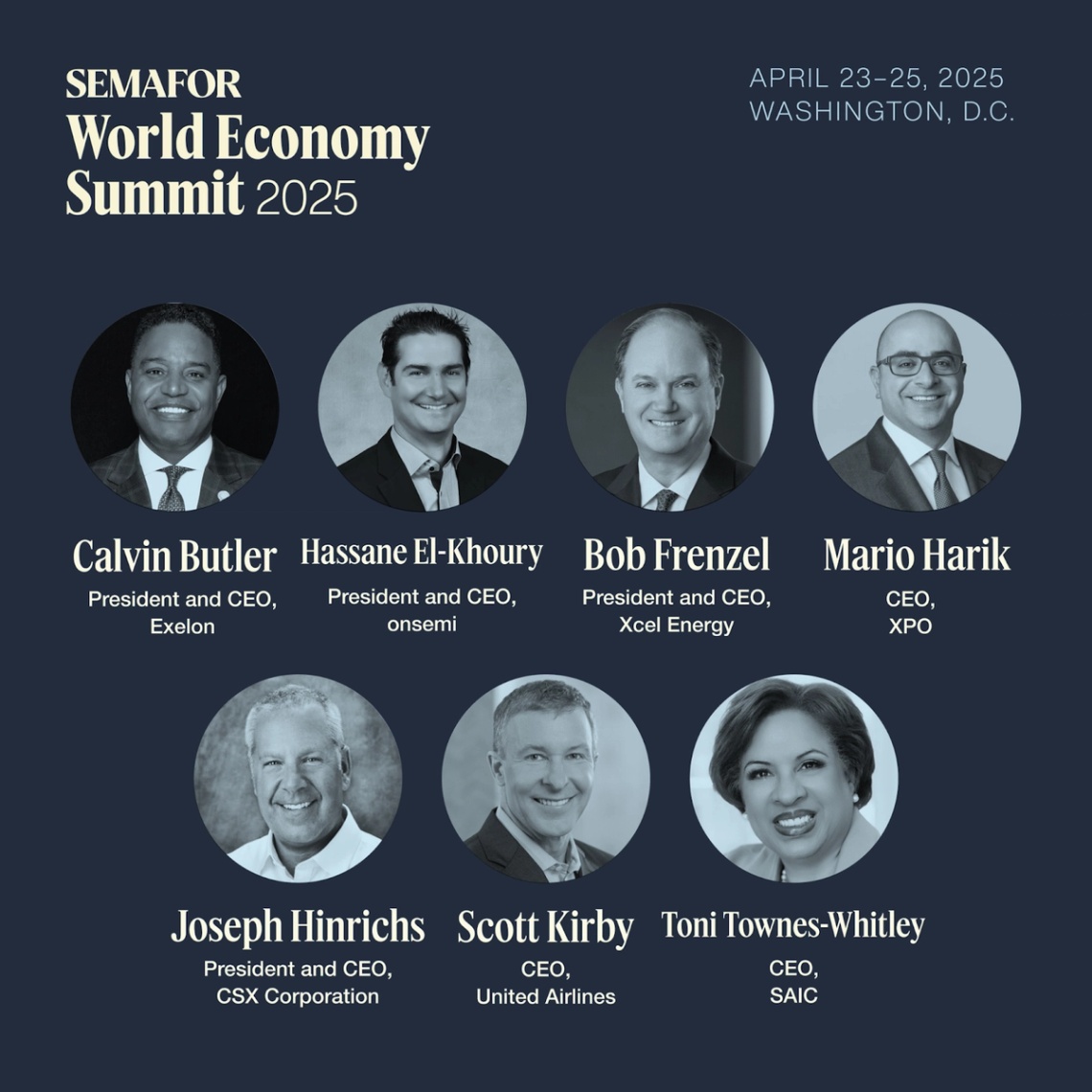 The World Economy Summit 2025 will bring together US Cabinet officials, global finance ministers, central bankers, and over 200 CEOs of the world’s largest companies. The three-day summit will take place Apr. 23–25, 2025, in Washington, DC, and will be the first of its kind since the new US administration took office. Featuring on-the-record conversations with top executives such as Calvin Butler, President and CEO, Exelon; Hassane El-Khoury, President and CEO, onsemi; Bob Frenzel, Chairman, President and CEO, Xcel Energy; Mario Harik, CEO, XPO; Joseph Hinrichs, President and CEO, CSX Corporation; and Scott Kirby, CEO, United Airlines; Toni Townes-Whitley, CEO, SAIC, the summit will advance dialogues that catalyze global growth and fortify resilience in an uncertain, shifting global economy. Apr. 23-25 | Washington, DC | Learn More |